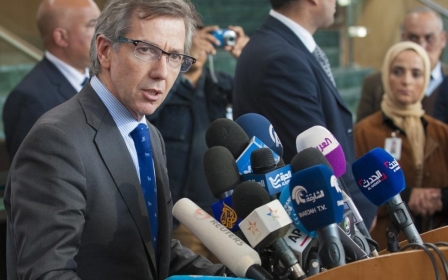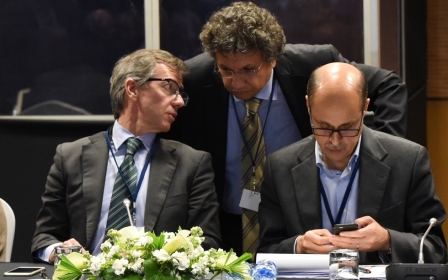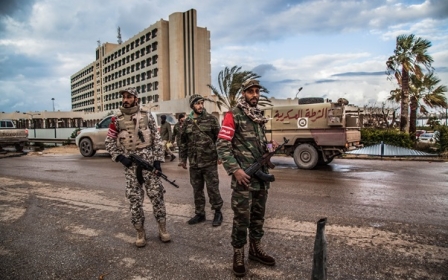Suicide car bomb attack kills 7 soldiers in Benghazi

At least seven Libyan soldiers have been confirmed to be killed after a suicide car bomb attack detonated at an army checkpoint in the eastern city of Benghazi, military sources said.
Special Forces spokesman Miloud Zaoui said the attack took place in the Laithi area south of the port city. Medical sources said that twelve other soldiers were injured in the attack.
Military commander Fadl al-Hasi told the Anadolu Agency that seven military personnel and the bomber were killed.
“A bomber blew up his explosives-laden car outside a military site [belonging to the Tobruk-based government] in al-Laithi district,” he said.
No group claimed responsibility for the attack.
Al-Hasi howeber blamed the Shura Council of Benghazi Revolutionaries, a coalition of militias including Ansar al-Sharia, for the attack which came one day after a top commander from the militant group was killed in clashes with army forces in Benghazi on Monday.
The attack is eerily similar to the suicide attack in Benghazi in December 2013, the first attack of its kind after Muammar Gaddafi was toppled from power a couple of years prior.
Seven soldiers were also killed after a suicide bomber detonated a truck packed with explosives at an army checkpoint at the military base in Barsis, around 50 kilometres outside Benghazi.
Libya has been in turmoil since the protests in 2011 evolved into a NATO-backed uprising.
The country has had two parliaments and governments since Tripoli was seized in August 2014 by the Fajr Libya militia coalition, which backed one government while a rival government fled to the country’s east.
The United Nations unveiled on Tuesday a six-point proposal aimed at ending the violence plaguing Libya by establishing a transitional government to rule until a new constitution is adopted and elections held.
UN Envoy Bernadino Leon, who has been shepherding peace talks between Libya’s rival parliaments, presented what the UN mission (UNSMIL) described as the “basis from which the parties can work” toward a solution.
The proposal was delivered at meetings in Tripoli and Tobruk, where the rival parliaments are based.
Middle East Eye propose une couverture et une analyse indépendantes et incomparables du Moyen-Orient, de l’Afrique du Nord et d’autres régions du monde. Pour en savoir plus sur la reprise de ce contenu et les frais qui s’appliquent, veuillez remplir ce formulaire [en anglais]. Pour en savoir plus sur MEE, cliquez ici [en anglais].




